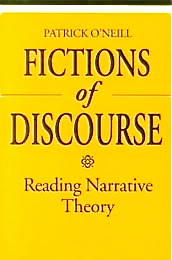 In a recent issue of Harper’s Bazaar, retail consultant Stefani Greenfield offers readers a glimpse into her typical workday. Activities are noted in hourly increments: breakfast, commute, Starbucks and a snack (“good, healthy”), meetings, lunch (“I eat very clean”), then more meetings. “I’m a big believer in verbal communication,” she says: “if a conversation extends past a few e-mails, you need to pick up the phone.” The day is a whirlwind of exciting contacts, projects and collaborations.
In a recent issue of Harper’s Bazaar, retail consultant Stefani Greenfield offers readers a glimpse into her typical workday. Activities are noted in hourly increments: breakfast, commute, Starbucks and a snack (“good, healthy”), meetings, lunch (“I eat very clean”), then more meetings. “I’m a big believer in verbal communication,” she says: “if a conversation extends past a few e-mails, you need to pick up the phone.” The day is a whirlwind of exciting contacts, projects and collaborations.
What is being advertised here? Clearly, a glamorous lifestyle. More specifically, a glamorous lifestyle in the fashion industry. And so, alongside its ads and reports on the latest fashion trends  and beauty products, Bazaar advertises the people who manage and promote those trends and products. The magazine’s self-mirroring premise might serve as the basis for some Oulipian textual exercise, or maybe a nouveau roman where the protagonist, wandering among mute things the object of some implacable eye, is revealed to be himself a pawn in an arbitrary narrative construct. Why not? Art and advertising share a
and beauty products, Bazaar advertises the people who manage and promote those trends and products. The magazine’s self-mirroring premise might serve as the basis for some Oulipian textual exercise, or maybe a nouveau roman where the protagonist, wandering among mute things the object of some implacable eye, is revealed to be himself a pawn in an arbitrary narrative construct. Why not? Art and advertising share a revolving door, and modern literature has always been fascinated by public messaging. Thus Joyce, narrating the long day of Leopold Bloom in Ulysses, has his protagonist thinking to himself
revolving door, and modern literature has always been fascinated by public messaging. Thus Joyce, narrating the long day of Leopold Bloom in Ulysses, has his protagonist thinking to himself
Of some sole unique advertisement to cause passers to stop in wonder, a poster novelty with all extraneous accretions excluded, reduced to its simplest and most efficient terms not exceeding the span of casual vision and congruous with the velocity of modern life (Ulysses, 1998, 672).
In Joyce’s time avant-garde journals and magazines took advantage of the re-sources of new mass media and graphic arts, all the while maintaining a critical stance with respect to advertising, consumerism and popular culture. The 1890’s Yellow Book set a standard for early modernist aesthetics with an editorial approach that pitted art against vulgar commerce. It was an unequal battle. The illicit connotations of the quarterly’s color — subversive books in Paris sported yellow — vied with mere sensationalism and exploitative merchandising, not to mention the sheer volume and speed of the com-petition. Noting this predicament, Paul Valéry saw the modern regime of speed and efficiency as signaling the decline of literature and art. “Modern man,” he says, “no longer works on what cannot be abbreviated.” What is the fate of storytelling in this context of spatial and temporal abbreviation? Ms. Greenfield is all over that. In fact, she provides us with a dictionary definition for the ages.
sported yellow — vied with mere sensationalism and exploitative merchandising, not to mention the sheer volume and speed of the com-petition. Noting this predicament, Paul Valéry saw the modern regime of speed and efficiency as signaling the decline of literature and art. “Modern man,” he says, “no longer works on what cannot be abbreviated.” What is the fate of storytelling in this context of spatial and temporal abbreviation? Ms. Greenfield is all over that. In fact, she provides us with a dictionary definition for the ages.
“I recently started my own consulting agency,” Ms. Greenfield says, “working on narration, or telling a brand’s story through product.”
Narration (n.). Telling a brand’s story through product. Anyone troubled by this definition might want to crack open a volume of narrative theory as an antidote, say Patrick O’Neill’s Fictions of Discourse, where the term “narration” is used to designate “the various narrative ‘voices’ involved in the communicative situation” (23). What “voices,” we might ask, are involved in the “narration” of Ms. Greenfield’s day: to all appearances the chronicle of a brand — the retail consultant herself — through “product”: a full-page “Work Diary” under Bazaar’s rubric “The LOOK”?
the “narration” of Ms. Greenfield’s day: to all appearances the chronicle of a brand — the retail consultant herself — through “product”: a full-page “Work Diary” under Bazaar’s rubric “The LOOK”?
Ms. Greenfield’s last entry in the diary is dated 6:30 P.M. The magazine story is hastening to its close. “I leave to have dinner with my husband, Mitchell, and spend time with my daughter — the ultimate detox.” Here the consultant displays her skills of “narration,” but not only in its abbreviated sense, as Valéry has it, or “all extraneous accretions excluded,” as per Joyce. Because although Greenfield’s account of her day relates nothing but enjoyable and exciting appointments, the conclusion implies that it was actually poisonous. One doesn’t, after all, “detox” from something “healthy” and “clean.”
A lapse? An implicit irony? Someone or something else must be “narrating” here.

